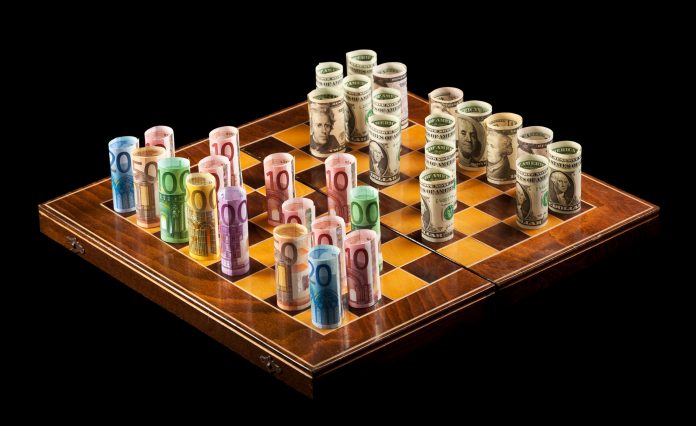Choosing to invest in foreign assets can open up great opportunities, but also presents a challenge that too many people overlook
Most individuals don’t think of exchange rates as being a big deal because they usually encounter them only when they’re going on holiday; however, there’s a big difference between paying an extra 5% for, say, €1,000 of travel funds and paying that extra on investments worth tens of thousands. Furthermore, because exchange rates are continually changing, it can be difficult to predict what you’ll actually end up paying when you start negotiating a purchase.
In addition, once you’ve made a purchase you could find that the value of your dividends or your returns upon selling is wiped out by the exchange rate. If the worst happens and the country’s economy where you’ve invested goes into serious decline, assets that could still be valuable to someone living in that country could become practically worthless to you. That is why it’s vital to understand how exchange rates work and what you can do to reduce your risks.
What causes exchange rates to vary?
The value of any country’s currency essentially depends on market confidence. Determining how they are likely to move can be approached in two ways: by watching the markets directly and by understanding the factors that can reduce confidence. Obvious ones include war, serious political instability, epidemic disease or suspicion of currency manipulation at government level. It’s important to note that what’s really happening doesn’t matter at this level – what influences the markets is what other people expect to happen. You can often spot currency trends simply by watching the forex market.
Reducing the risks
What can you do to reduce the impact of currency shifts on your investments? One useful trick is to hedge your transactions. That is done through the forex market, by taking a position on a currency pair that’s contrary to what you hope for when the exchange is finally made. This means that what you lose on your deal if the exchange rate shifts the wrong way, you gain back through forex. Of course, it also means that any bonus from a positive shift in the exchange rate is lost, but the key thing is that it provides certainty, enabling you to transfer currency internationally in much the same way as you might transfer it at home.
The changing value of assets
Something that’s harder to do anything about is the loss of transferable value that can occur when a currency falls in a country where you already have investments. If you see that coming, you might decide that it’s best to withdraw your funds – indeed, multiple investors doing so can precipitate an economic crash. If there is a sudden drop in value because of a problem that may not persist, it’s usually best to try and ride it out – for instance, when the pound itself fell after the result of the Brexit referendum was announced it was clear that it would rise again, at least to an extent, for an interval before the vote was translated into action. Those over-hasty investors who pulled their money out straight away lost out as a result.
Indeed, as the sudden influx of overseas investors in British property at the low point shows, when you’re confident that a currency is going to fall and then rise again it can actually be worth investing more money in order to take advantage of a favourable rate.
Negotiating deals
When a currency stays high for a long time it can damage a country’s economy precisely because it discourages inward investment. To work around this, governments often offer special deals to foreign investors. These tend to be sector-specific or based around specific pledges related to ongoing investment or job creation. If you’re considering investing in a particular country, it’s worth investigating to find out if there are arrangements like this that you can take advantage of.
Why it’s worth it
All of this may make foreign investment sound a bit daunting but of course there are advantages to it. Most notably, it means that if your own currency falls then you will have some protection, with assets elsewhere going up in value by comparison even as your home assets depreciate in international terms. Spreading your eggs between different baskets is always the smart move – you just need to make sure you can get them there without losing too much money in the process.











